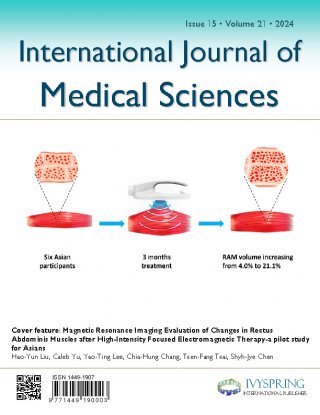A circular network of adenosine-mediated mitochondrial dysfunction as coregulators of acute myocardial infarction
IF 3.2
3区 医学
Q1 MEDICINE, GENERAL & INTERNAL
引用次数: 0
Abstract
This study aims to explore the molecular mechanisms and associated pathways of myocardial infarction (MI). We employed a variety of analytical methods, including Mendelian Randomization (MR) analysis, transcriptome microarray data analysis, gene function and pathway enrichment analysis, untargeted metabolomic mass spectrometry analysis, and gene-metabolite interaction network analysis. The MR analysis results revealed a significant impact of mitochondrial DNA copy number on MI and coronary artery bypass grafting. Transcriptome analysis unveiled numerous differentially expressed genes associated with myocardial ischemia, with enrichment observed in cardiac function and energy metabolism pathways. Metabolomic analysis indicated a significant downregulation of mitochondrial regulation pathways in ischemic myocardium. T500 metabolite quantification analysis identified 90 differential metabolites between MI and Sham groups, emphasizing changes in metabolites associated with energy metabolism. Gene-metabolite interaction network analysis revealed the significant roles of key regulatory molecules such as HIF1A, adenosine, TBK1, ATP, NRAS, and EIF2AK3, in the pathogenesis of myocardial ischemia. In summary, this study provides important insights into the molecular mechanisms of MI and highlights interactions at multiple molecular levels, contributing to the establishment of new theoretical foundations for the diagnosis and treatment of MI.腺苷介导的线粒体功能障碍循环网络是急性心肌梗死的核心调节因子
本研究旨在探索心肌梗死(MI)的分子机制和相关途径。我们采用了多种分析方法,包括孟德尔随机化(MR)分析、转录组芯片数据分析、基因功能和通路富集分析、非靶向代谢组质谱分析和基因-代谢物相互作用网络分析。MR分析结果显示,线粒体DNA拷贝数对心肌梗死和冠状动脉旁路移植有显著影响。转录组分析揭示了许多与心肌缺血相关的差异表达基因,观察到这些基因在心脏功能和能量代谢途径中富集。代谢组分析表明,缺血心肌中的线粒体调控途径明显下调。T500代谢物定量分析确定了90种不同代谢物在MI组和Sham组之间的差异,强调了与能量代谢相关的代谢物的变化。基因-代谢物相互作用网络分析揭示了HIF1A、腺苷、TBK1、ATP、NRAS和EIF2AK3等关键调控分子在心肌缺血发病机制中的重要作用。总之,本研究为心肌缺血的分子机制提供了重要见解,并突出了多个分子水平的相互作用,有助于为心肌缺血的诊断和治疗建立新的理论基础。
本文章由计算机程序翻译,如有差异,请以英文原文为准。
求助全文
约1分钟内获得全文
求助全文
来源期刊

International Journal of Medical Sciences
MEDICINE, GENERAL & INTERNAL-
CiteScore
7.20
自引率
0.00%
发文量
185
审稿时长
2.7 months
期刊介绍:
Original research papers, reviews, and short research communications in any medical related area can be submitted to the Journal on the understanding that the work has not been published previously in whole or part and is not under consideration for publication elsewhere. Manuscripts in basic science and clinical medicine are both considered. There is no restriction on the length of research papers and reviews, although authors are encouraged to be concise. Short research communication is limited to be under 2500 words.
 求助内容:
求助内容: 应助结果提醒方式:
应助结果提醒方式:


